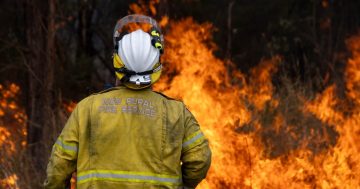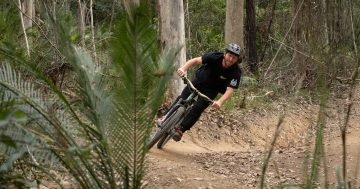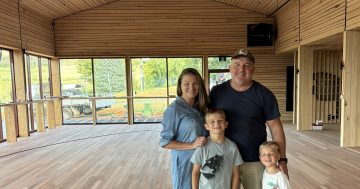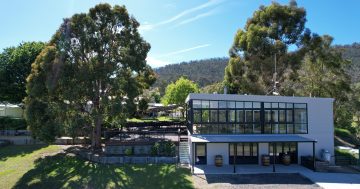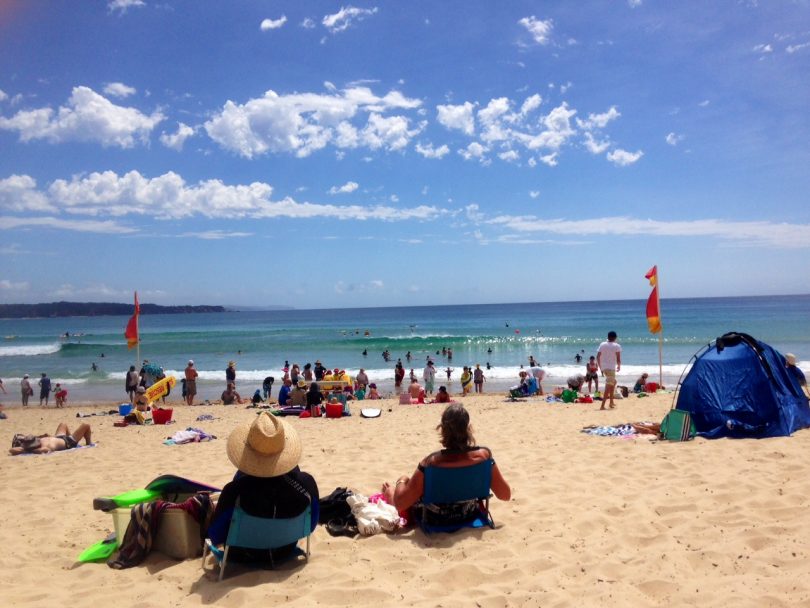
Tathra Beach at its best in February, the only beach south of Mollymook with the flags flying seven days a week. Photo: Sapphire Coast Tourism.
‘Bushfire affected’ has become an all-inclusive term since fires broke out along the South Coast in December. Haven’t we all been affected? Some of us have lost houses, pets or stock, our summer holiday, our innocence or large chunks of annual income.
The local economy has certainly been slammed, with the retail sector taking the biggest hit. When the Merimbula Chamber of Commerce surveyed its 120 members last week, about half responded that their takings are down 60 per cent or more on previous years, confirming the dollar value of those six golden weeks of summer holidays for coastal businesses.
Sapphire Coast Tourism has announced plans to advocate for a bigger-than-usual autumn tourist season to try to recapture summer’s losses from bushfires. It’s hoping people living out of fire-affected areas will get on board to help support local businesses.
“We’re focusing on creating and amplifying existing autumn events from the end of March through to the end of April, which encompasses the ACT, NSW and Victorian school holidays,” a spokesperson says.
But as Merimbula Chamber president Nigel Ayling points out, some businesses can’t last that long, with 10 per cent of survey respondents saying they will only survive if given financial assistance and 20 per cent reporting that they can only keep their doors open “if business picks up quickly”.
“You can’t recreate what’s been lost,” Ayling says, “the income that businesses lost after the tourist evacuation notice is not coming back.”
There are many grants and loans available following a natural disaster, such as the Disaster Recovery Grant, Emergency Bushfire Response Concessional Loans and the Regional Tourism Bushfire Recovery Grant, and all are intended to help small businesses and primary producers bounce back after a natural disaster of the scale we saw this summer.
The only hitch? ‘Bushfire-affected’ is limited to those businesses that have lost assets or their primary place of operation in the fires.
“So far we have had 68 responses to the question, have you received any government assistance relating to the fires? And 68 responses all said ‘no'”, Ayling says.
And only seven out of 90 respondents reported physical damage caused by fire to their place of business.
This leaves business who are clearly fire-affected but not physically destroyed in towns such as Batemans Bay, Moruya, Narooma, Merimbula, Pambula and Tathra, which in some cases had fire on their doorstep for months, quite literally at a loss.
Pambula fashion house Zoe.O owners Megan Luhrs and Gwyneth Roberts, who have been designing and making sustainable clothes for women since 2015, report that their takings are down 80 per cent this year, despite selling their products online.
“We are currently clearing all our stock at cost to keep cash coming in and our doors open,” Luhrs says.
According to Ayling, about half the businesses surveyed are insured against loss of income or interruption to business but only a third of those are expecting to see any insurance money.
“The tourist evacuation had a direct impact on local businesses – they had no way of avoiding it and to learn that they are entitled to nothing, it starts to be really frustrating.”
So far, eight businesses in the Merimbula area are in the process of closing, including chain sandwich store Subway.
Ayling is the first to admit that business in Merimbula was “tough going” before the bushfires, but he says that the effects of the bushfires will be felt in his community well into the future.
However, he is encouraged by Bega Valley Shire Council’s proactive approach and by last week’s announcement that two new positions have been created to assist in the recovery effort – an Event Coordinator and a Bushfire Recovery Coordinator.
For more about how you can support fire-affected South Coast businesses by attending upcoming events, visit Sapphire Coast Tourism or Bega Valley Shire Council.







